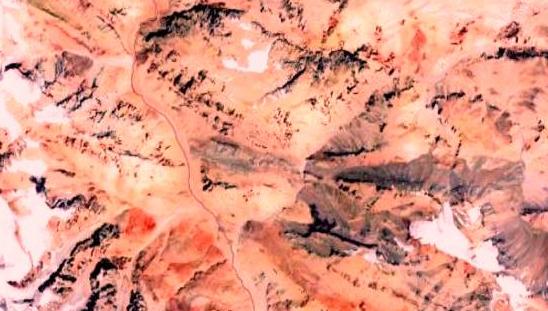Whether Depsang Plain is China’s Main Target
By :
Notice: Trying to get property 'fName' of non-object in /home/u589520015/domains/observerdawn.com/public_html/module/Application/view/application/index/news.phtml on line 23
Notice: Trying to get property 'lName' of non-object in /home/u589520015/domains/observerdawn.com/public_html/module/Application/view/application/index/news.phtml on line 23

The
strategically-located Depsang Plains in Ladakh did not find any mention in the
defense minister, Rajnath Singh’s detailed statements in Parliament, despite
Chinese soldiers blocking all Indian patrols there since April and a massive
mobilization by the two rival armies in the region.
A senior defense official said Depsang
was an “old lingering issue” that should not be “equated or conflated” with the
“new flashpoints” in Pangong Tso-Chushul, Gogra-Hot Springs and Galwan Valley
this year. “There is no immediate military standoff at Depsang, where there are
huge overlapping claims about the Line of Actual Control (LAC). There is no
fresh attempt to change the status quo there”, he added.
But there is growing concern in security
circles that China could be diverting India’s attention from the far more
important Depsang region through its aggressive maneuvers in the Pan-gong
Tso-Chushul and other areas lower down along the frontier in Ladakh. The
People’s Liberation Army (PLA) has for the last five months been actively
blocking Indian soldiers in Depsang from going to their traditional Patrolling
Points 10, 11, 11A, 12 and 13, which are well short of India’s LAC claim
further to the east there, as was earlier reported by TOI. The PLA troops
camping near the ‘Bottleneck’ or ‘Y-junction’ area in Depsang, which is around
18 km inside what India perceives to be its territory, swing into action to
block an Indian patrol whenever they see it approaching.
China, in fact, claims 972 sq km of
territory in the region. A core concern for Beijing is that the Depsang-Daulat
Beg Oldie (DBO) sector is in close proximity to its Western Highway G-219,
which connects the Tibetan Autonomous Region to Xinjiang. The PLA has deployed
over 12,000 troops, with tanks and artillery guns, from its 4th Motorized
Infantry Division and 6th Mechanized Infantry Division, in its depth areas
across the LAC there.
Since May this year, India has also
counter-deployed with two additional brigades (each has around 3,000 troops) as
well as tank and mechanized infantry regiments in the Depsang tabletop plateau,
which located at an altitude of 16,000 ft provides access to the DBO advance
landing ground and the critical Karakoram Pass in the north.
